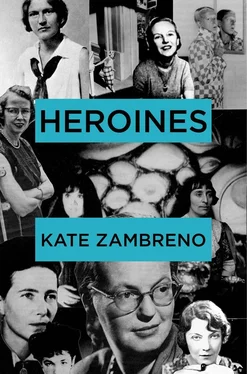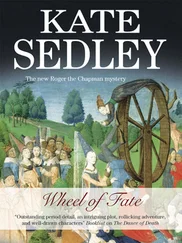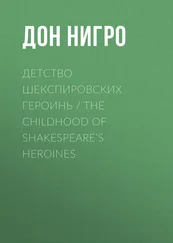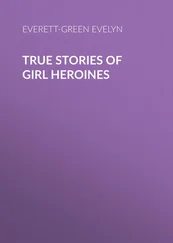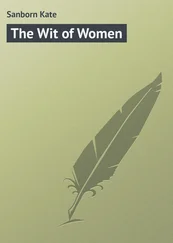(A life that is like a shadow life. A wife that is like a shadow wife.)
When John is with me on the weekends, we can escape outside of our head spaces, and look out at all the absurdity of this strange new landscape together — such, still, spasms of joy, just being together, the intense pleasure of being in each other’s presence, making out like teenagers, dancing ecstatically in the kitchen, going to various grocery stores, certain produce we buy at each, cooking our meals at home, taking walks around the neighborhood, hand-in-hand or arm encircling waist and looking at everyone’s proud gardens, always, always planning, plotting, for another, better, future — it is manageable. We are, as always, partners-in-crime. We are, most of the time, madly, disgustingly, in love, yes, CRAZY for each other.
(Yet sometimes I am convinced I am just crazy.)
Always the return. To the bliss and ecstasy but then the depths of despair when HE IS GONE.
Alone in these first few months, it is absolutely unbearable. Alone I forget. (Or perhaps, I remember.) A torrent of sobs every day, at my desk. In this new environment I have seemingly forgotten my own sovereignty.
When I am productive with writing — I am light, happy, even high-functioning in the domestic realm. Yet on most days the heaviness sets in and I refuse to leave on my own. When I don’t write I don’t feel I deserve the day. I stay inside and choose not to exist. I mimic one of my favorite living writers, the acidic Austrian novelist Elfriede Jelinek, at home in her designer clothes, always, always at home. Yet isn’t the Great Male Writer also under a self-imposed house arrest while creating? Who gets to say what’s pathological?
It is not lost on me the similarities in my current situation to Charlotte Perkins Gilman’s story “The Yellow Wallpaper,” which I teach. The husband named John. The gothic surroundings. The sense of being isolated, haunted. And I am: Unnamed Narrator. It’s really all so Victorian I can’t stand it.
I begin to call John up constantly while he is at work. I insist on reading him everything I’ve written for that day. A ritual resurrected. I need him to constantly validate me. It’s good, he tells me. My lover, my literary advisor. I need, I knead.
Do you love it?
Do you love it or just like it?
It’s good. It’s really good.
(One cannot speak to Zelda in superlatives.)
If he dismisses me once, it’s all over. Everything rises or falls on the inflection in his voice. The ability for me to remain vertical not horizontal (to reword Sylvia).
He now speaks to me with his banker’s hat on. He is anxious to get off the phone. Clipped. “Okay.” “Okay.”
DESTROY HE SAID. My phone calls to him are often when I give up my writing every day, exhausted.
(He tries, I am trying.)
We are in the Austrian poet Ingeborg Bachmann’s novel Malina in these scenes we play. He the brutal, clipped Svengali, me the emotional woman writer. He is Malina, my live-in double. I get jealous over how much John loves Ingeborg Bachmann.
He emails me. He is now John, not automaton. He quotes me Paul Celan,
Every word you speak
You owe to
Destruction
Paul Celan, the model for the stranger who rescues the fairytale princess in Malina. (He is my prince I insist on rescuing me from my day.)
H/h: code on the romance review sites for “Hero/heroine.” Capital, lowercase.
In our copy of Bachmann’s novel John has penciled in the margins. I find it upon a reread.
Dearest Kate,
Never let me become your Malina.
Forgive me, for when I have been.
It’s the fascism bred in the minds of men.
And when I read this of course I swoon, I feel so in love. The woman in Malina loves Ivan she is happy happy happy she cries from the rooftops happy happy happy!
I distrust the Feminine in literature,” T.S. Eliot once opined. A fear of the feminine in writing — of the hysterical, the emotional, the violent. Much as we fear women’s rage and tears.
In Eliot’s essay on Hamlet in which he coins the phrase “objective correlative,” he writes, “Hamlet (the man) is dominated by an emotion which is inexpressible, because it is in excess of the facts as they appear.” His theories of depersonalization form the foundation of the theoretical school called New Criticism, still the fundamental ideology governing how we read and talk about writing. One cannot portray emotions in excess (in literature or in life). This is a judgment not only of a work of literature but also of propriety, how one should behave. One must discipline one’s text, one’s self.
HE DO THE POLICE IN DIFFERENT VOICES — the original title of “The Waste Land.”
Why is Hamlet’s grief excessive? (Ummm, let’s see, his father was murdered, his mother is fucking his uncle, it’s cold in Denmark, maybe that’s enough for a bad mood, IT’S COLD IN DENMARK.) But Hamlet is still allowed to be overcome by despair, however excessive, because it is still read as existential. He is the hero of the story. It’s Ophelia who wails and moans and drowns in an inch of water. But Eliot doesn’t ask about her objective correlative. If Hamlet is seen as overwrought to T.S. Eliot, what does he think of Ophelia’s melancholic swoons? He who conjures up her dramatic goodnight speech in “The Waste Land” (“Good night, ladies, good night, sweet ladies, good night, good night.”) Nothing is objective to Ophelia. It is all, so so subjective. She takes things so personally.
Viv in a letter to Tom’s brother: “And be personal . You must be personal, or else it’s no good.”
He is the guardian of the correct, at home and in literature, of what is kept out (emotions, excess).
The real jouissance of these romance novels, for me, is the change that occurs within these arrogant male aristocrats when they fall in love, the melting of their fortress of icy remove. They become caretakers instead, no longer cold and cruel, standoffish Lloyd’s of London bankers.
In Flaubert’s novel Charles moves himself and his wife to a new town because Emma has begun to display symptoms of melancholy. But we are not supposed to read Emma as an existential heroine. Flaubert depicts her misery as frivolous and poisoned by schoolgirl fantasies, of never being able to be happy with anything real, like her doting if dull husband. But maybe Emma is moody because she feels trapped. She has just left her father’s home, the boring farm, and now she is stuck in some backwater town. An alienation of the self — to go from daughter to wife and expect freedom in that movement.
(Yet marriage was considered a cure for hysteria.)
Not enough has been made of the existential alienation that can come for women in that first year of marriage. Both Virginia and Viv experienced this debilitating depression. The first years of Woolf ’s marriage “beset by arguments, extended periods of alienation.” Virginia’s suicide attempt the second year.
They were expected to leave the house they grew up in, change their names, and be suddenly not their own sovereign person but a “wife-of.”
Vivien(ne) hated when she was left alone. Jane too could not stand to be alone. Zelda would grow enraged as Scott would work and ignore her.
“She had reverted to infantile terrors of loneliness,” writes one of Eliot’s biographers of Vivien(ne).
(I read these biographies of the Great Men, their pathologizing, constructing, language, and hone my fury, like listening to right-wing talk radio.)
In Greek tragedy, Penelope is the wife who resigns herself to waiting. Clytaemnestra is the wife who waits and grows murderous.
A woman’s voice, in quotations. “My nerves are bad to-night. Yes, bad. Stay with me. / Speak to me. Why do you never speak. Speak.”
Читать дальше
